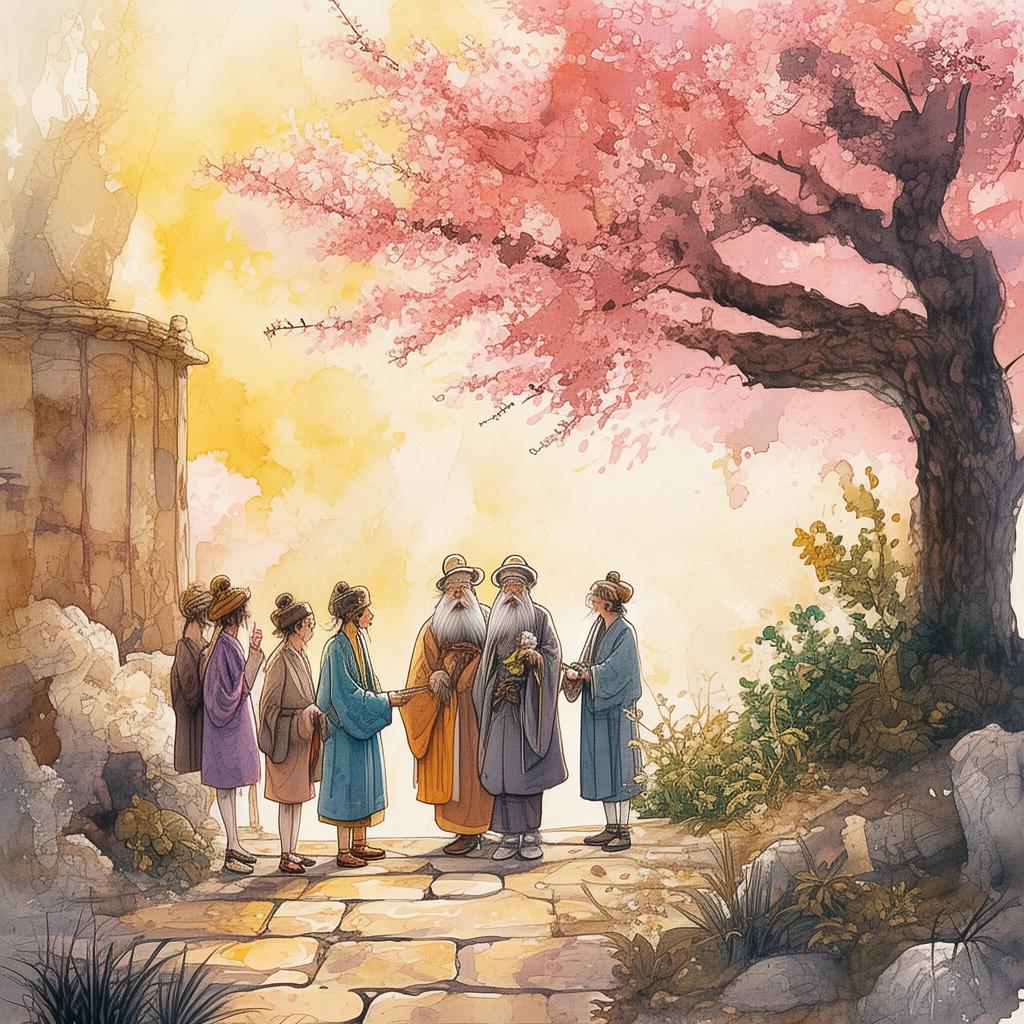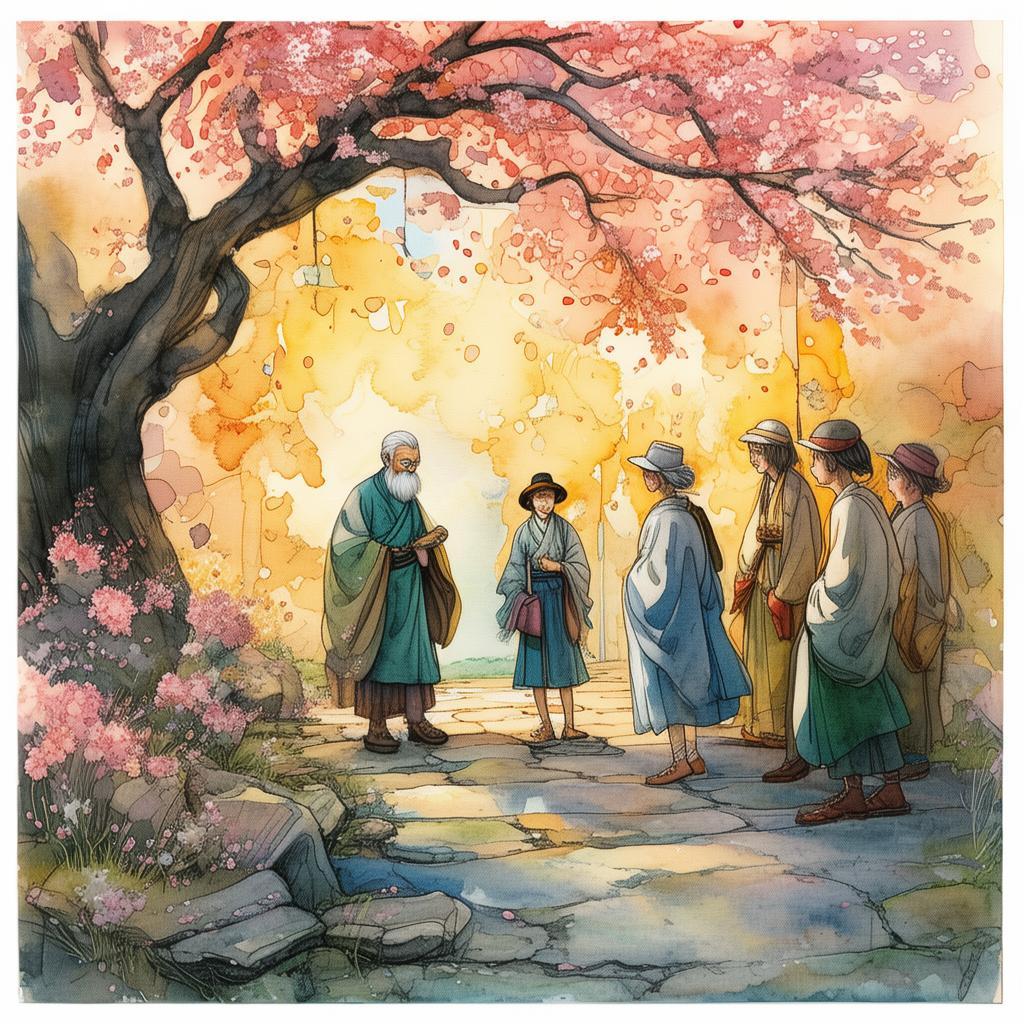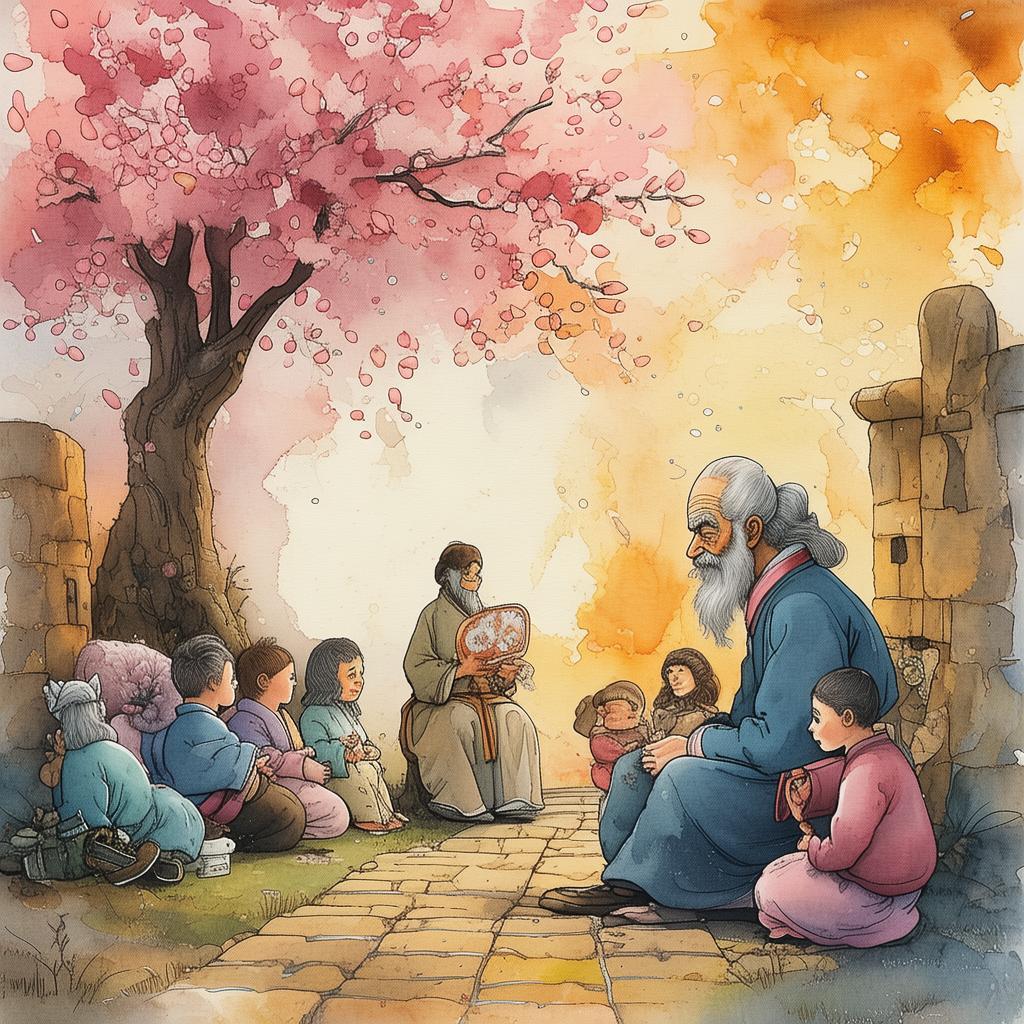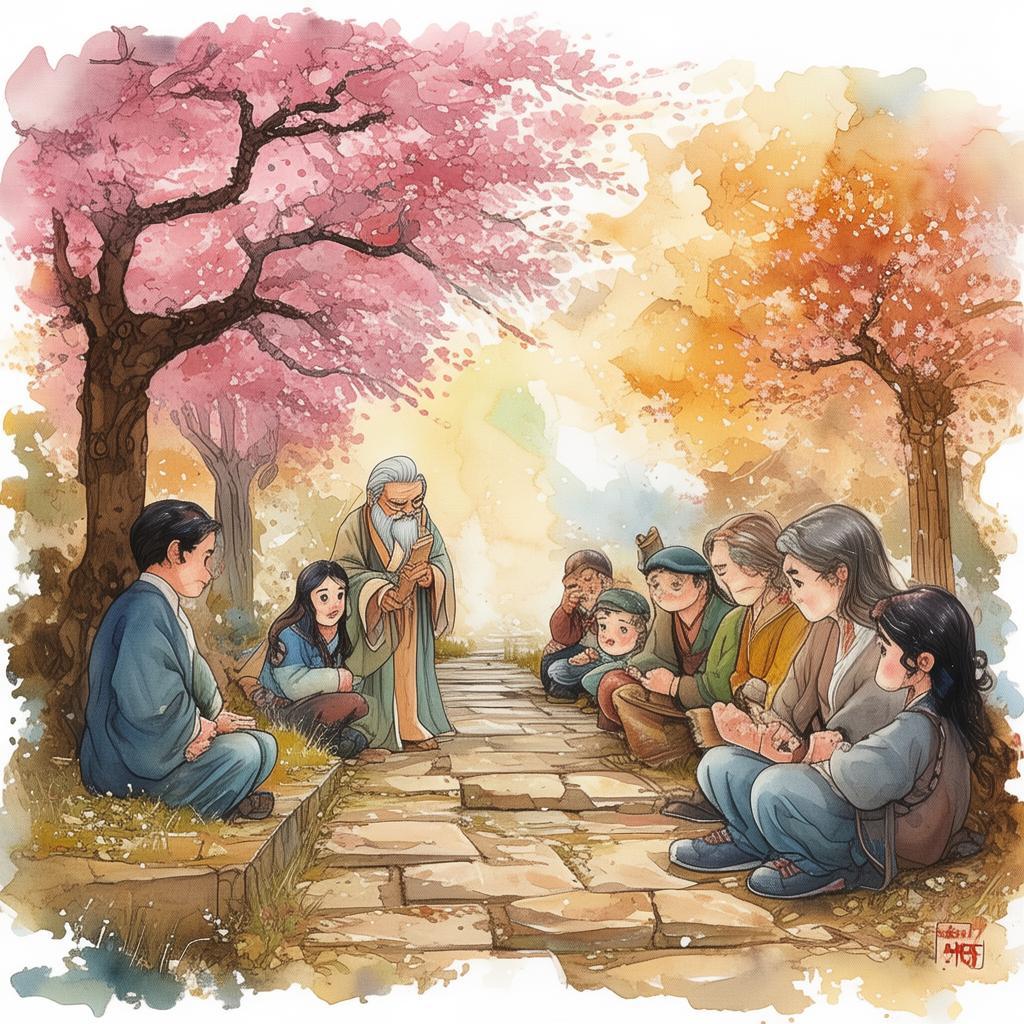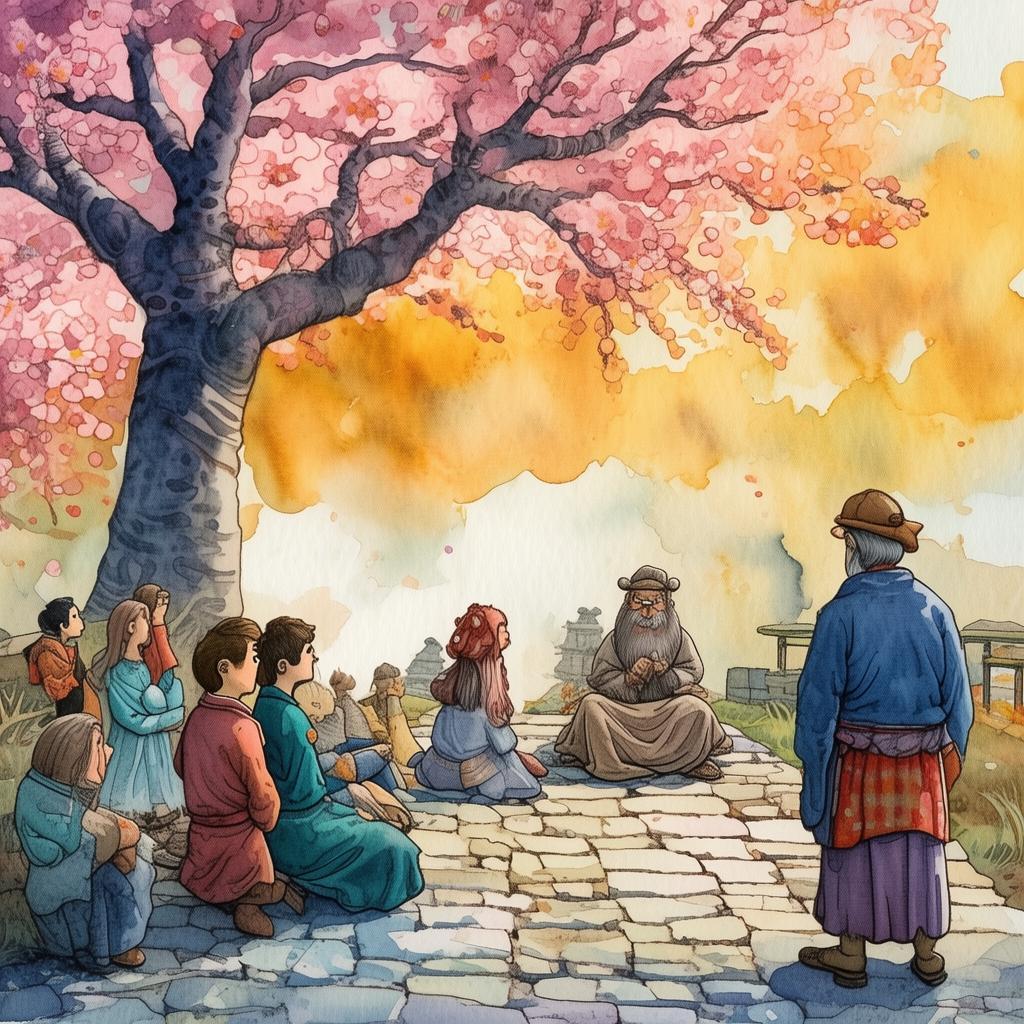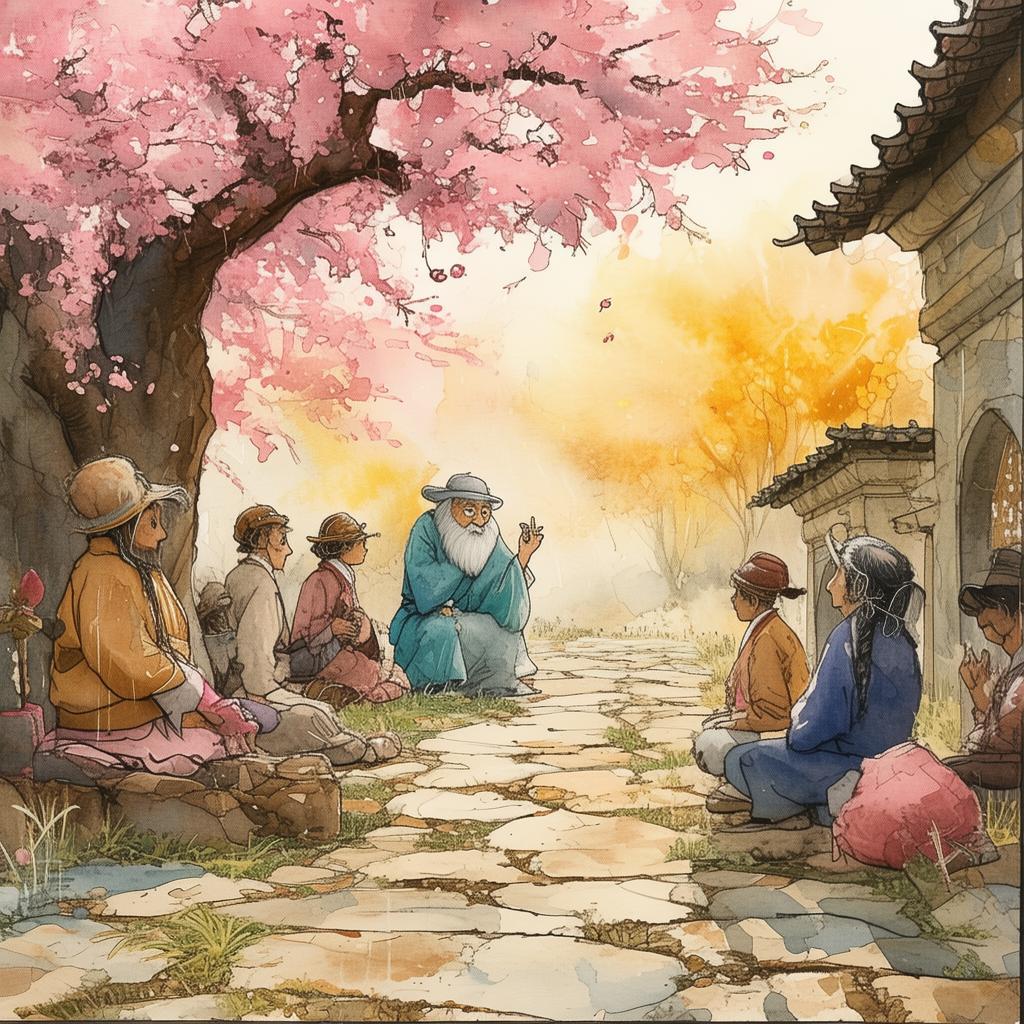The Chef's Lazy Quest for the Perfect Recipe
In the bustling heart of ancient China, there was a renowned chef named Liang who was known for his culinary prowess. However, Liang had a peculiar trait that set him apart from his peers: he was incredibly lazy. Despite his talent in the kitchen, Liang preferred lounging in his bamboo chair, sipping tea, and dreaming up recipes rather than toiling over the stove.
One sunny afternoon, Liang's friend, a wise old scholar named Zhang, visited him. Zhang had heard of Liang's reputation and was eager to taste the chef's latest creation. "Liang, I've heard tales of your culinary genius," Zhang said with a twinkle in his eye. "Show me your masterpiece."
Liang chuckled and replied, "Ah, Zhang, my friend, I have no masterpiece. I am a lazy chef, and my greatest achievement is finding the most effortless way to please the palate."
Zhang was intrigued. "Then, I challenge you, Liang. Create the perfect recipe that embodies the essence of laziness itself."
Liang's eyes sparkled with mischief. "A challenge, you say? Very well, Zhang. I shall accept."
The next few days were a whirlwind of activity in Liang's kitchen. He spent hours experimenting with flavors, ingredients, and techniques. He even sought advice from street vendors, farmers, and bakers. But no matter how hard he tried, Liang couldn't find the perfect recipe that satisfied his lazy heart.
One evening, as the sun dipped below the horizon, Liang sat at his bamboo chair, his mind racing. He realized that his quest for the perfect recipe was a reflection of his own lazy nature. He wanted something that would bring him satisfaction without any effort.
Suddenly, a thought struck him. "What if the perfect recipe is not about the taste or the technique, but about the essence of laziness itself?"
Liang leaped from his chair and rushed to his desk, grabbing a piece of paper and a quill. He began to write furiously, his mind racing with ideas. After several drafts, he finally arrived at a recipe that seemed to capture the essence of laziness.
He called it "The Lazy Chef's Delight." The recipe was simple: a bowl of steamed rice, a few slices of salted fish, and a pot of green tea. Liang explained that the rice represented comfort, the fish symbolized the satisfaction of a simple meal, and the tea brought tranquility.
Zhang was baffled. "This is it? The perfect recipe?"
Liang nodded. "Yes, Zhang. This recipe is about enjoying life without any effort. It's about embracing laziness and finding joy in the simplest things."

Zhang pondered for a moment before he spoke. "Liang, you have captured the essence of a Chinese proverb: 'The wise man finds joy in the simplest things, while the foolish man seeks satisfaction in the most complicated endeavors.'"
Liang smiled. "Exactly, Zhang. I have found the perfect recipe, and it is not about the taste or the technique, but about the essence of laziness itself."
From that day on, Liang's "Lazy Chef's Delight" became a popular dish among the locals. They enjoyed the simplicity and the message it conveyed: sometimes, the best things in life are the easiest to find.
And so, the lazy chef's quest for the perfect recipe led to an unexpected discovery of a timeless Chinese proverb, proving that sometimes, the most profound truths can be found in the simplest of things.
✨ Original Statement ✨
All articles published on this website (including but not limited to text, images, videos, and other content) are original or authorized for reposting and are protected by relevant laws. Without the explicit written permission of this website, no individual or organization may copy, modify, repost, or use the content for commercial purposes.
If you need to quote or cooperate, please contact this site for authorization. We reserve the right to pursue legal responsibility for any unauthorized use.
Hereby declared.
